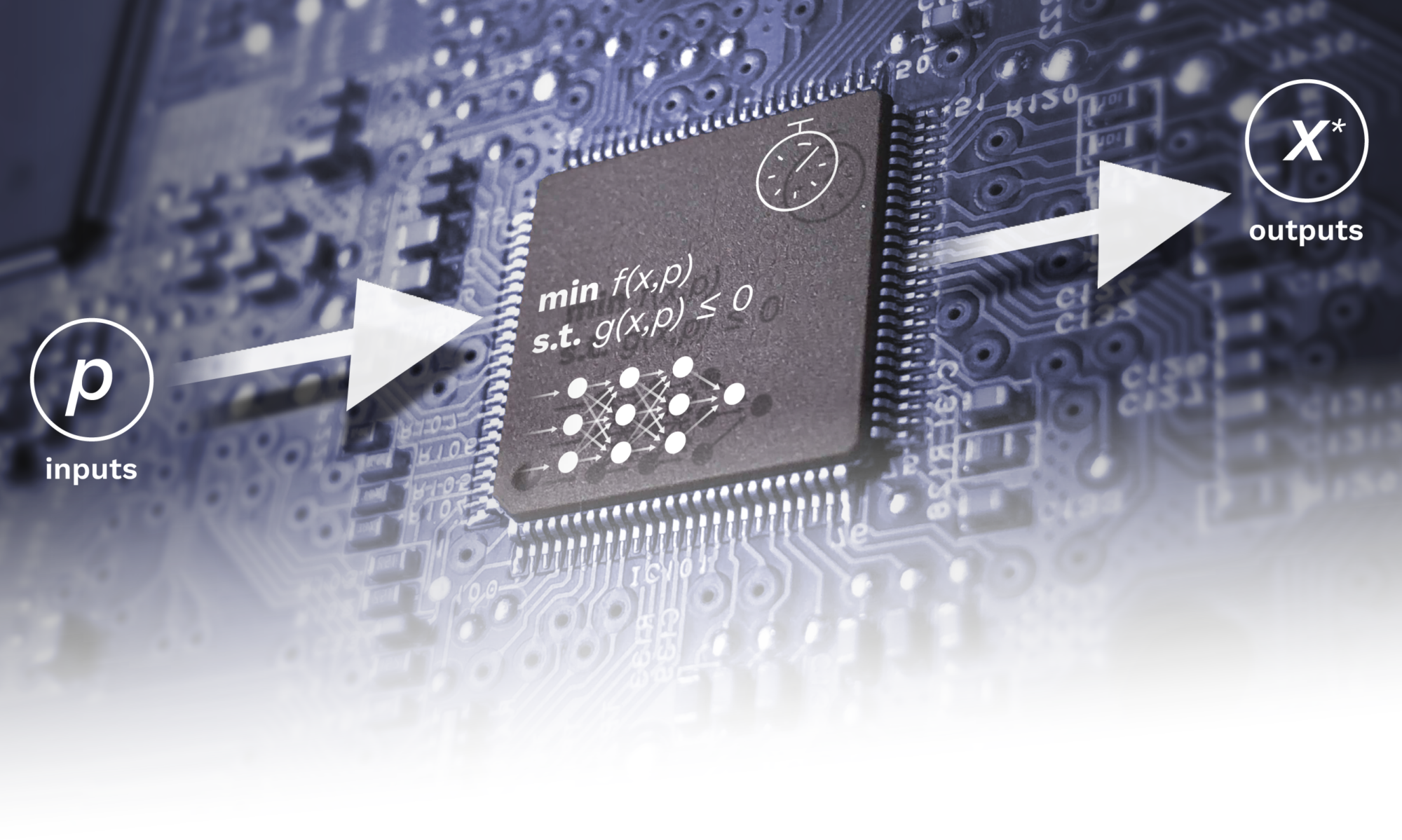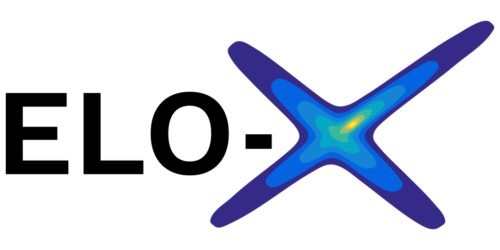Fabio Bonassi
PhD Candidate
Dipartimento di Elettronica, Infomazione e Bioingegneria, Politecnico di Milano

Fabio Bonassi received his B.Sc. and M.Sc. in Automation & Control Engineering in 2016 and 2018, respectively, from Politecnico di Milano, Italy. In 2019, he received the “Claudio Maffezzoni Prize” for the best master thesis for the “application of advanced automation and control techniques in highly technological contexts”. Since November 2019, he is pursuing a PhD at Politecnico di Milano, working under the supervision of prof. Riccardo Scattolini.
Project description
The research theme under investigation concerns the use of Neural Networks for data-driven control of unknown dynamical systems. Neural Networks have proven to be powerful tools for nonlinear system identification and control design, yet little results advocating their use in theoretically-sound contexts are available in the literature.
In this regard, research work has been devoted on the Input-to-State Stability (ISS) and Incremental Input-to-State Stability (𝛿ISS) properties of Recurrent Neural Networks (RNNs). In particular, sufficient conditions have been devised under which the RNN architectures used for identification (such as NARXs, LSTMs and GRUs) are guaranteed to enjoy these properties.
The ISS and 𝛿ISS are useful stability notions for nonlinear systems, which have been leveraged to perform, among other things, the safety verification of the model and to design Model Predictive Control regulators with guaranteed nominal closed-loop stability and recursive feasibility.
Xie, Jing; Bonassi, Fabio; Scattolini, Riccardo
Internal Model Control design for systems learned by Control Affine Neural Nonlinear Autoregressive Exogenous Models Working paper Forthcoming
Forthcoming, (Accepted by IEEE Transactions on Automation Science and Engineering).
@workingpaper{xie2024internal,
title = {Internal Model Control design for systems learned by Control Affine Neural Nonlinear Autoregressive Exogenous Models},
author = {Jing Xie and Fabio Bonassi and Riccardo Scattolini},
url = {https://arxiv.org/abs/2402.05607},
year = {2024},
date = {2024-02-13},
urldate = {2024-02-13},
abstract = {This paper explores the use of Control Affine Neural Nonlinear AutoRegressive eXogenous (CA-NNARX) models for nonlinear system identification and model-based control design. The idea behind this architecture is to match the known control-affine structure of the system to achieve improved performance. Coherently with recent literature of neural networks for data-driven control, we first analyze the stability properties of CA-NNARX models, devising sufficient conditions for their incremental Input-to-State Stability (𝛿ISS) that can be enforced at the model training stage. The model's stability property is then leveraged to design a stable Internal Model Control (IMC) architecture. The proposed control scheme is tested on a real Quadruple Tank benchmark system to address the output reference tracking problem. The results achieved show that (i) the modeling accuracy of CA-NNARX is superior to the one of a standard NNARX model for given weight size and training epochs, (ii) the proposed IMC law provides performance comparable to the ones of a standard Model Predictive Controller (MPC) at a significantly lower computational burden, and (iii) the 𝛿ISS of the model is beneficial to the closed-loop performance.}},
note = {Accepted by IEEE Transactions on Automation Science and Engineering},
keywords = {},
pubstate = {forthcoming},
tppubtype = {workingpaper}
}
Bonassi, Fabio; Bella, Alessio La; Farina, Marcello; Scattolini, Riccardo
Nonlinear MPC design for incrementally ISS systems with application to GRU networks Journal Article
In: Automatica, vol. 159, iss. 11381, pp. 111381, 2024.
@article{bonassi2024nonlinear,
title = {Nonlinear MPC design for incrementally ISS systems with application to GRU networks},
author = {Fabio Bonassi and Alessio La Bella and Marcello Farina and Riccardo Scattolini},
doi = {https://doi.org/10.1016/j.automatica.2023.111381},
year = {2024},
date = {2024-01-03},
urldate = {2024-01-03},
journal = {Automatica},
volume = {159},
issue = {11381},
pages = {111381},
keywords = {},
pubstate = {published},
tppubtype = {article}
}
Bonassi, Fabio; Bella, Alessio La; Panzani, Giulio; Farina, Marcello; Scattolini, Riccardo
Deep Long-Short Term Memory networks: Stability properties and Experimental validation Proceedings Article
In: 2023 European Control Conference (ECC), pp. 1-6, IEEE, Bucharest, Romania, 2023, ISBN: 978-3-907144-08-4.
@inproceedings{bonassi2023deep,
title = {Deep Long-Short Term Memory networks: Stability properties and Experimental validation},
author = {Fabio Bonassi and Alessio La Bella and Giulio Panzani and Marcello Farina and Riccardo Scattolini},
url = {https://ieeexplore.ieee.org/document/10178405
http://arxiv.org/abs/2304.02975},
doi = {https://doi.org/10.23919/ECC57647.2023.10178405},
isbn = {978-3-907144-08-4},
year = {2023},
date = {2023-07-25},
urldate = {2023-07-25},
booktitle = {2023 European Control Conference (ECC)},
pages = {1-6},
publisher = {IEEE},
address = {Bucharest, Romania},
abstract = {The aim of this work is to investigate the use of Incrementally Input-to-State Stable (δISS) deep Long Short Term Memory networks (LSTMs) for the identification of nonlinear dynamical systems. We show that suitable sufficient conditions on the weights of the network can be leveraged to setup a training procedure able to learn provenly-δISS LSTM models from data. The proposed approach is tested on a real brake-by-wire apparatus to identify a model of the system from input-output experimentally collected data. Results show satisfactory modeling performances.},
keywords = {},
pubstate = {published},
tppubtype = {inproceedings}
}
Xie, Jing; Bonassi, Fabio; Farina, Marcello; Scattolini, Riccardo
Robust offset-free nonlinear model predictive control for systems learned by neural nonlinear autoregressive exogenous models Journal Article
In: International Journal of Robust and Nonlinear Control, vol. 33, no. 16, pp. 9992-10009, 2023.
@article{xie2023robust,
title = {Robust offset-free nonlinear model predictive control for systems learned by neural nonlinear autoregressive exogenous models},
author = {Jing Xie and Fabio Bonassi and Marcello Farina and Riccardo Scattolini},
url = {https://onlinelibrary.wiley.com/doi/full/10.1002/rnc.6883},
doi = {10.1002/rnc.6883},
year = {2023},
date = {2023-07-13},
urldate = {2023-07-13},
journal = {International Journal of Robust and Nonlinear Control},
volume = {33},
number = {16},
pages = {9992-10009},
publisher = {arXiv},
abstract = {This paper presents a robust Model Predictive Control (MPC) scheme that provides offset-free setpoint tracking for systems described by Neural Nonlinear AutoRegressive eXogenous (NNARX) models. The NNARX model learns the dynamics of the plant from input-output data, and during the training the Incremental Input-to-State Stability (𝛿ISS) property is forced to guarantee stability. The trained NNARX model is then augmented with an explicit integral action on the output tracking error, which allows the control scheme to enjoy offset-free tracking ability. A tube-based MPC is finally designed, leveraging the unique structure of the model, to ensure robust stability and robust asymptotic zero error regulation for constant reference signals in the presence of model-plant mismatch or unknown disturbances. Numerical simulations on a water heating system show the effectiveness of the proposed control algorithm.},
keywords = {},
pubstate = {published},
tppubtype = {article}
}
Bonassi, Fabio
2023.
@phdthesis{bonassi2023reconciling,
title = {Reconciling deep learning and control theory: recurrent neural networks for model-based control design},
author = {Fabio Bonassi},
url = {https://www.politesi.polimi.it/handle/10589/196384},
year = {2023},
date = {2023-02-01},
urldate = {2023-02-01},
address = {Milan, Italy},
institution = {Politecnico di Milano},
abstract = {This doctoral thesis aims to establish a theoretically-sound framework for the adoption of Recurrent Neural Network (RNN) models in the context of nonlinear system identification and model-based control design. The idea, long advocated by practitioners, of exploiting the remarkable modeling performances of RNNs to learn black-box models of unknown nonlinear systems, and then using such models to synthesize model-based control laws, has already shown considerable potential in many practical applications. On the other hand, the adoption of these architectures by the control systems community has been so far limited, mainly because the generality of these architectures makes it difficult to attain general properties and to build solid theoretical foundations for their safe and profitable use for control design. To address these gaps, we first provide a control engineer-friendly description of the most common RNN architectures, i.e., Neural NARXs (NNARXs), Gated Recurrent Units (GRUs), and Long Short-Term Memory networks (LSTMs), as well as their training procedure. The stability properties of these architectures are then analyzed, using common nonlinear systems’ stability notions such as the Input-to-State Stability (ISS), the Input-to-State Practical Stability (ISPS), and the Incremental Input-to-State Stability (δISS). In particular, sufficient conditions for these properties are devised for the considered RNN architectures, and it is shown how to enforce these conditions during the training procedure, in order to learn provenly stable RNN models. Model-based control strategies are then synthesized for these models. In particular, nonlinear model predictive control schemes are first designed: in this context, the model’s δISS is shown to enable the attainment of nominal closed-loop stability and, under a suitable design of the control scheme, also robust asymptotic zero-error output regulation. Then, an alternative computationally-lightweight control scheme, based on the internal model control strategy, is proposed, and its closed-loop properties are discussed. The performances of these control schemes are tested on several nonlinear benchmark systems, demonstrating the potentiality of the proposed framework. Finally, some fundamental issues for the practical implementation of RNN-based control strategies are mentioned. In particular, we discuss the need for the safety verification of RNN models and their adaptation in front of changes of the plant’s behavior, the definition of RNN structures that exploit qualitative physical knowledge of the system to boost the performances and interpretability of these models, and the problem of designing control schemes that are robust to the unavoidable plant-model mismatch.},
keywords = {},
pubstate = {published},
tppubtype = {phdthesis}
}
Bonassi, Fabio; Farina, Marcello; Xie, Jing; Scattolini, Riccardo
An Offset-Free Nonlinear MPC scheme for systems learned by Neural NARX models Proceedings Article
In: 2022 IEEE 61st Conference on Decision and Control (CDC), pp. 2123-2128, IEEE, 2022, ISBN: 978-1-6654-6761-2.
@inproceedings{bonassi2022offset,
title = {An Offset-Free Nonlinear MPC scheme for systems learned by Neural NARX models},
author = {Fabio Bonassi and Marcello Farina and Jing Xie and Riccardo Scattolini},
url = {https://doi.org/10.1109/CDC51059.2022.9992362
http://arxiv.org/abs/2203.16290},
doi = {10.1109/CDC51059.2022.9992362},
isbn = {978-1-6654-6761-2},
year = {2022},
date = {2022-12-06},
urldate = {2022-01-01},
booktitle = {2022 IEEE 61st Conference on Decision and Control (CDC)},
journal = {arXiv preprint arXiv:2203.16290},
pages = {2123-2128},
publisher = {IEEE},
abstract = {This paper deals with the design of nonlinear MPC controllers that provide offset-free setpoint tracking for models described by Neural Nonlinear AutoRegressive eXogenous (NNARX) networks. The NNARX model is identified from input-output data collected from the plant, and can be given a state-space representation with known measurable states made by past input and output variables, so that a state observer is not required. In the training phase, the Incremental Input-to-State Stability (δISS) property can be forced when consistent with the behavior of the plant. The δISS property is then leveraged to augment the model with an explicit integral action on the output tracking error, which allows to achieve offset-free tracking capabilities to the designed control scheme. The proposed control architecture is numerically tested on a water heating system and the achieved results are compared to those scored by another popular offset-free MPC method, showing that the proposed scheme attains remarkable performances even in presence of disturbances acting on the plant.},
keywords = {},
pubstate = {published},
tppubtype = {inproceedings}
}
Bonassi, Fabio; Farina, Marcello; Xie, Jing; Scattolini, Riccardo
On Recurrent Neural Networks for learning-based control: recent results and ideas for future developments Journal Article
In: Journal of Process Control, vol. 114, pp. 92-104, 2022, ISSN: 0959-1524.
@article{bonassi2022survey,
title = {On Recurrent Neural Networks for learning-based control: recent results and ideas for future developments},
author = {Fabio Bonassi and Marcello Farina and Jing Xie and Riccardo Scattolini},
url = {https://arxiv.org/abs/2111.13557},
doi = {10.1016/j.jprocont.2022.04.011},
issn = {0959-1524},
year = {2022},
date = {2022-01-01},
journal = {Journal of Process Control},
volume = {114},
pages = {92-104},
abstract = {This paper aims to discuss and analyze the potentialities of Recurrent Neural Networks (RNN) in control design applications. The main families of RNN are considered, namely Neural Nonlinear AutoRegressive eXogenous, Echo State Networks, Long Short Term Memory, and Gated Recurrent Units. The goal is twofold. Firstly, to survey recent results concerning the training of RNN that enjoy Input-to-State Stability (ISS) and Incremental Input-to-State Stability (𝛿ISS) guarantees. Secondly, to discuss the issues that still hinder the widespread use of RNN for control, namely their robustness, verifiability, and interpretability. The former properties are related to the so-called generalization capabilities of the networks, i.e. their consistency with the underlying real plants, even in presence of unseen or perturbed input trajectories. The latter is instead related to the possibility of providing a clear formal connection between the RNN model and the plant. In this context, we illustrate how ISS and 𝛿ISS represent a significant step towards the robustness and verifiability of the RNN models, while the requirement of interpretability paves the way to the use of physics-based networks. The design of model predictive controllers with RNN as plant’s model is also briefly discussed. Lastly, some of the main topics of the paper are illustrated on a simulated chemical system.},
keywords = {},
pubstate = {published},
tppubtype = {article}
}
Bonassi, Fabio; Xie, Jing; Farina, Marcello; Scattolini, Riccardo
Towards lifelong learning of Recurrent Neural Networks for control design Proceedings Article
In: 2022 European Control Conference (ECC), pp. 2018–2023, IEEE 2022.
@inproceedings{Bonassi2022,
title = {Towards lifelong learning of Recurrent Neural Networks for control design},
author = {Fabio Bonassi and Jing Xie and Marcello Farina and Riccardo Scattolini},
year = {2022},
date = {2022-01-01},
urldate = {2022-01-01},
booktitle = {2022 European Control Conference (ECC)},
pages = {2018--2023},
organization = {IEEE},
keywords = {},
pubstate = {published},
tppubtype = {inproceedings}
}
Bonassi, Fabio; Scattolini, Riccardo
Recurrent Neural Network-based Internal Model Control Design for Stable Nonlinear Systems Journal Article
In: European Journal of Control, vol. 65, pp. 100632, 2022, ISSN: 0947-3580.
@article{bonassi2022imc,
title = {Recurrent Neural Network-based Internal Model Control Design for Stable Nonlinear Systems},
author = {Fabio Bonassi and Riccardo Scattolini},
url = {https://doi.org/10.1016/j.ejcon.2022.100632
http://arxiv.org/abs/2108.04585},
doi = {10.1016/j.ejcon.2022.100632},
issn = {0947-3580},
year = {2022},
date = {2022-01-01},
urldate = {2022-01-01},
journal = {European Journal of Control},
volume = {65},
pages = {100632},
abstract = {Owing to their superior modeling capabilities, gated Recurrent Neural Networks (RNNs), such as Gated Recurrent Units (GRUs) and Long Short-Term Memory networks (LSTMs), have become popular tools for learning dynamical systems. This paper aims to discuss how these networks can be adopted for the synthesis of Internal Model Control (IMC) architectures. To this end, a first gated RNN is used to learn a model of the unknown input-output stable plant. Then, another gated RNN approximating the model inverse is trained. The proposed scheme is able to cope with the saturation of the control variables, and it can be deployed on low-power embedded controllers since it does not require any online computation. The approach is then tested on the Quadruple Tank benchmark system, resulting in satisfactory closed-loop performances.},
keywords = {},
pubstate = {published},
tppubtype = {article}
}


